-
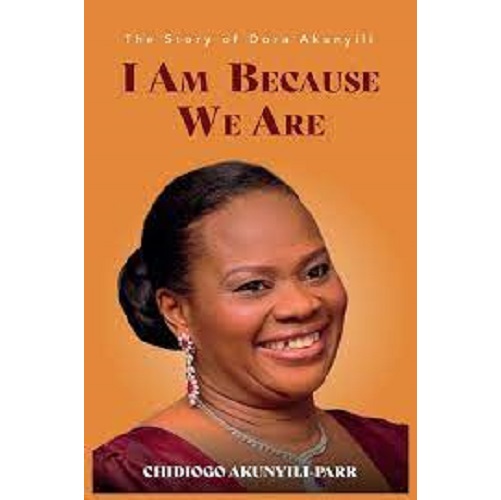
I Am Because We Are: An African Mother’s Fight for the Soul of a Nation- by Chidiogo Akunyili-Parr
₦6,500I Am Because We Are illuminates the role of kinship, family, and the individual’s place in society, while revealing a life of courage, how community shaped it, and the web of humanity that binds us.
-
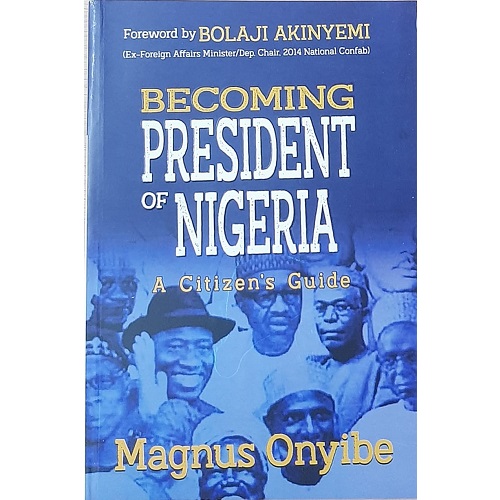
Becoming President Of Nigeria: A Citizen’s Guide- by Magnus Onyibe
₦8,500The 357-page book chronicles the evolution of political leadership in Nigeria and outlines the turning points in the nation’s checkered political history. With keen eyes on the ethnic and religious sensitivities responsible for the mutual suspicion of one another by the multiple ethnic nationalities that make up the country, the author shines light on how Nigeria is practising zero-sum politics via the rotation of presidential power between the north and south, an agreement that has inadvertently been undermining the unity of the country and is responsible for the lack of real socioeconomic progress even as it is fuelling ethno-religious disharmony in Nigeria.
-

Reclaim your Potential : A guide to becoming the Muslimah you’ve always wanted to be- by Umm Muhammad
₦5,000As the story unfolds, the author relates Maryams plight to the present day challenges muslimahs face and gives a detailed insight into how they can overcome those challenges and ultimately reclaim their potential, in shaa Allah.
-
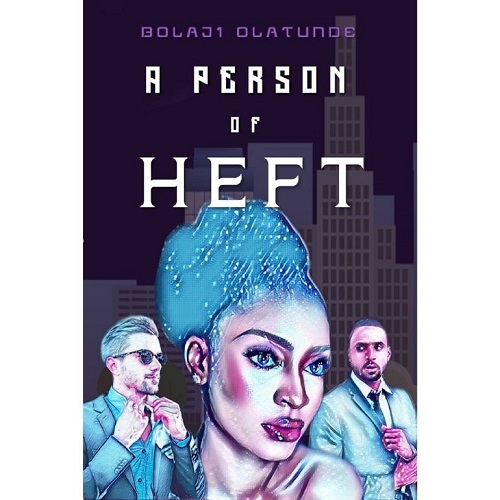
A Person Of Heft – by Bolaji Olatunde
₦6,000It is 2015. Nigeria has a new president who has promised change and prosperity for Nigerians. Tomi Makinde is a young Nigerian professional woman struggling to get a foothold in corporate Nigeria. As her marketing career grows, she finds herself catapulted fast to unexpected heights due to a chance encounter. As she climbs the corporate ladder, she contends with intense power play and betrayal. Despite her professional success, she is haunted by the memories of her parent’s failed marriage, she is afraid of letting her guard down to allow love in.
-
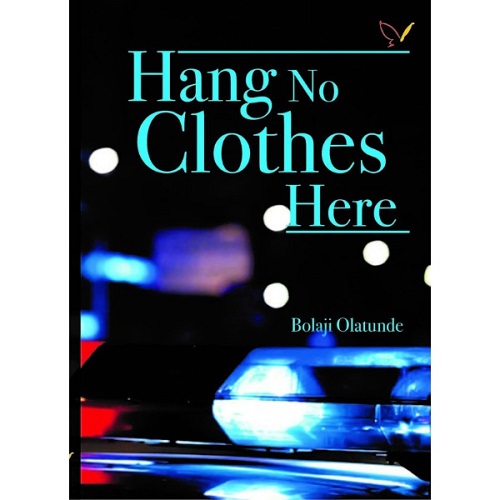
Hang No Clothes Here – by Bolaji Olatunde
₦4,000John Braimoh, an assistant superintendent of the Nigerian police, becomes involved in a seemingly noble cause corruption case—the killing of five apparently deviant youths in Abuja, a situation in which his closest friend and colleague, and four other officers are deeply embroiled.
-
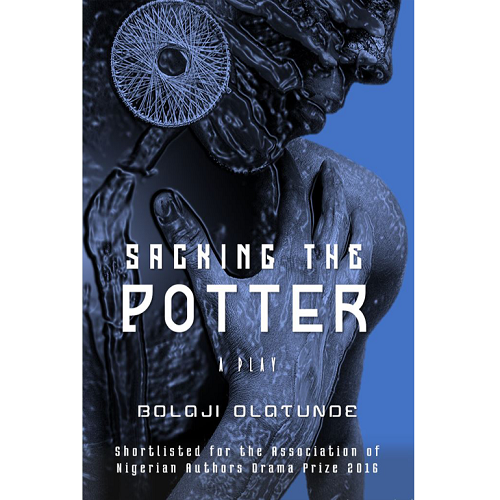
Sacking The Potter – by Bolaji Olatunde
₦1,800Michael Owoyemi is about to close a multi-million dollar business deal on behalf of his demanding employer. On a Monday morning scheduled for the closure of the deal, Biola Owoyemi, his usually reserved wife, physically restrains him from leaving their Ibadan home, insisting that he must stay at home to protect her and their first and only child, their two-month-old son, from unnamed forces keen on snatching their child away from them.
-
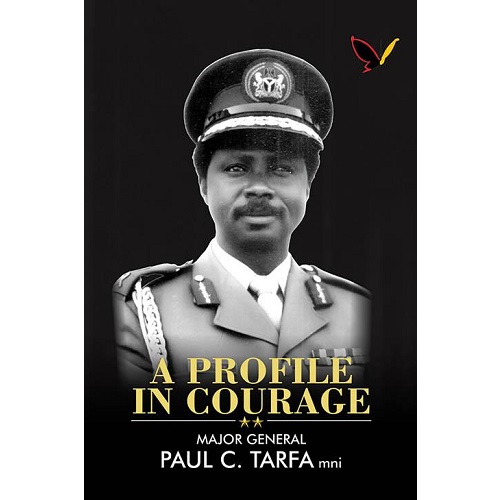
A PROFILE IN COURAGE – by Major General Paul Tarfa
₦8,000A Profile of Courage is the memoir of Paul Chabri Tarfa, retired Major General of the Nigerian Army. In lucid prose, he recounts his upbringing in Garkida, his choice of a career in the Army, his role in frustrating the January 15th, 1966 coup at the Federal Guards, Lagos, and his active participation in the military through the Civil War, coups and counter-coups until his retirement in 1988. Revised in view of restating his truth to today’s Nigeria,
-
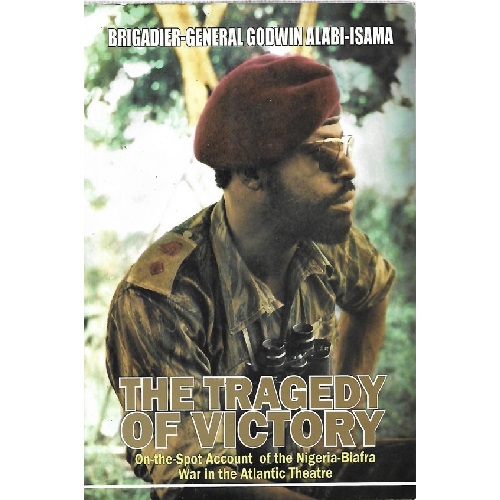
THE TRAGEDY OF VICTORY – by Brigadier General Godwin Alabi-Isama
₦7,500The Tragedy of Victory: On-the-Spot Account of the Nigeria-Biafra War in the Atlantic Theatre is a detailed chronological narrative of the war that lasted from July 6, 1967, to January 15, 1970. With about 500 photographs and maps, the book dwarfs all other previous publications on this subject matter in terms of depth of facts, coverage and accuracy.
-
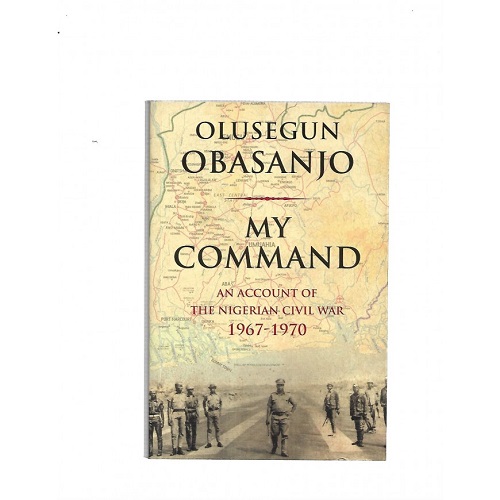
MY COMMAND: AN ACCOUNT OF THE NIGERIAN CIVIL WAR 1967-1970 – by Olusegun Obasanjo
₦4,500My Command gives a detailed and vivid account of military operations on all fronts, as well as the response of the international community and the impact of the war on individual lives. Olusegun Obasanjo, in this memoir, tells of this delicate time in the life of Nigeria with honesty and humanity. This book is as relevant now as it was decades ago—one man’s record of our past and a guide for our nation’s present and future leaders and citizens.
-
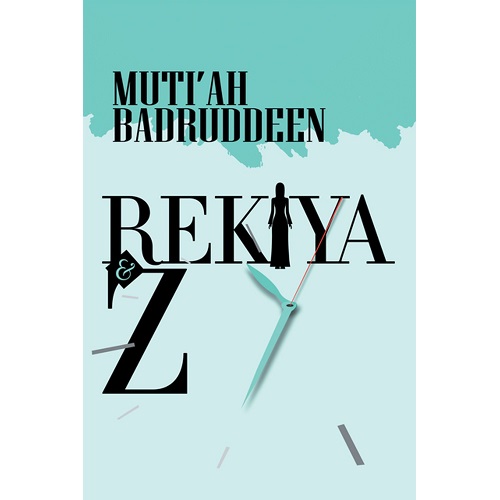
Rekiya & Z Hardcover – by Muti’ah Badruddeen
₦6,800When Rekiya and Zaynunah met as teenagers, neither had any inkling this would be the start of a lifelong friendship. That the bond they formed as friends would see them through the best and worst times
-
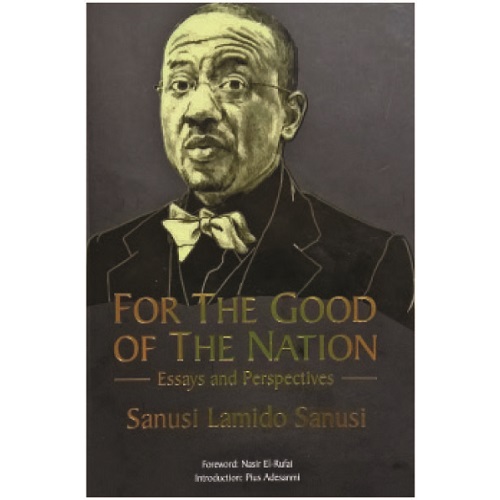
For The Good Of The Nation: Essays and Perspectives – by Sanusi Lamido Sanusi
₦8,500This collection of essays and interviews is more than just a book; it is (a) ‘tour de force’ covering many topics and subjects. Essay sentences and paragraphs contain an idea and message to make our country where fairness and justice reign. Whether discussing western or Islamic philosophy, History and Anthropology of the various peoples in Nigeria, or the divisive injection of ethnicity and religion into our politics, Lamido is brutally frank, thoughtful and logical. – Mallam Nasir el-Rufai, Governor, Kaduna State, Nigeria
-

Verity of Old by Chio Zoe
₦4,000Nyx had finally begun to find her place at Dalfeira, but when Cecily stumbled into her life with a piece of information Nyx needed, everything changed.
Now Nyx – a wanted criminal – must return to the place she was held captive and tortured, and attempt another daring rescue. But when the eradication of magic wielders becomes blatant and a missing detail of her past comes to light, the stakes are suddenly raised.
